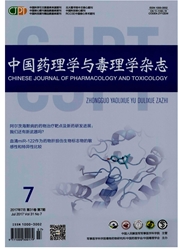

 中文摘要:
中文摘要:
以病毒蛋白为靶的抗病毒药物面临易产生耐药、抗病毒谱较窄等诸多问题,宿主分子靶向已经成目前抗病毒药物研究的重要策略,宿主靶标的辨识是宿主靶向药物设计的关键。病毒-宿主相互作用的系统生物学研究将成为抗病毒药物宿主靶标辨识和宿主-病毒联合靶向治疗策略设计提供有力工具。近年来通过蛋白质组学、大规模基因沉默、基因芯片等实验得到了大量的病毒感染相关宿主分子和病毒-宿主分子相互作用关系,为在病毒-宿主分子网络水平揭示病毒生存策略奠定了基础。整合病毒感染基因表达谱和人蛋白相互作用网络可以构建病毒感染激活网络,进而通过网络分析获得关键的宿主因子。正在发展的动态蛋白质组学和动态网络分析技术将为建立更加真实的病毒一宿主分子网络模型,进而辨识有效的宿主靶标提供有力工具。
 英文摘要:
英文摘要:
Discovering effective drugs to treat viral infections and their associated diseases remains one of the main public health challenges. Viral-inhibitor drugs suffer from widespread drug-resistance problem due to the high mutation rates of virus. The narrow spectrum of action also makes difficulties for virus-directed strategy. An alternative promising antiviral approach is by using host-directed strategies. Owing to advances in infectomics and interactome, it is now possi- ble to investigate viral infection at the systems level. The systematic exploration of virus-host interactionsbased on high- throughput interactome and gene knockdown reveal an ever - increasing number of host cell proteins that are important or essential for the viral life cycle, and thus provide possible targets for host-directed antiviral drug development. The compu- tational systems biology studys on virus-host interaction network also provide powerful tools to identify effevtive host tar- gets. Especially, recent studies on dynamic host response to viral infection and network perturbation model will provide more realistic models for host target identification.
 同期刊论文项目
同期刊论文项目
 同项目期刊论文
同项目期刊论文
 期刊信息
期刊信息
